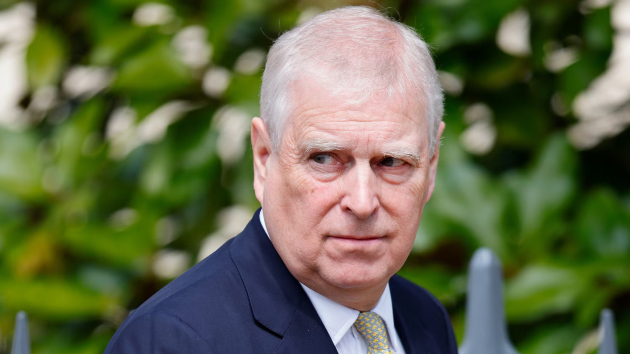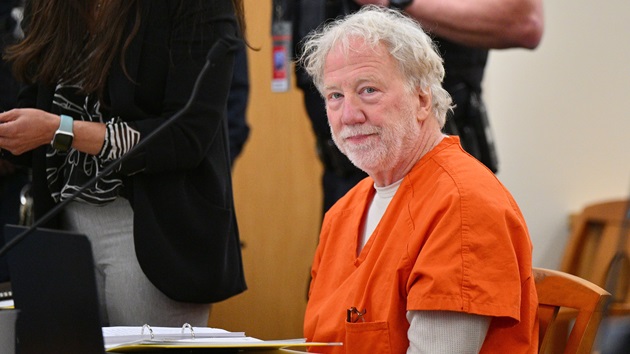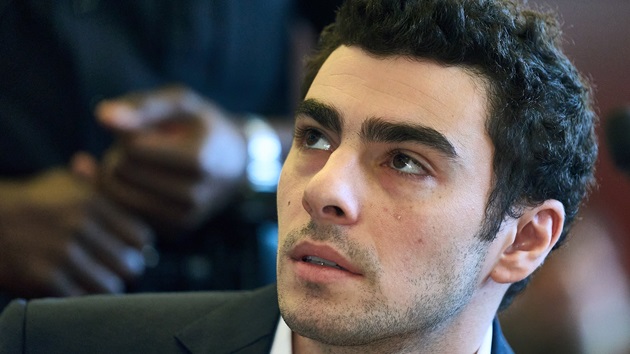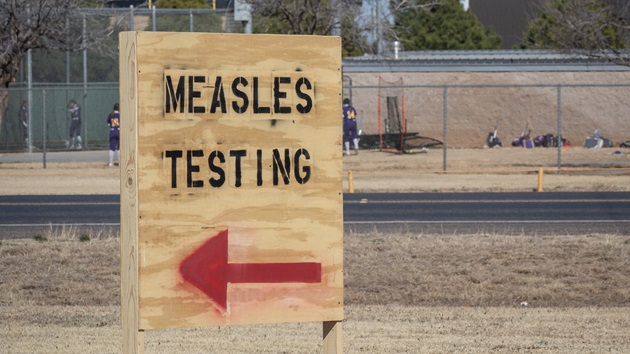
(NEW YORK) — While the latest release of Epstein files has touched off another round of controversy in the U.S., it has ignited a veritable firestorm in Europe, where the new tranche of emails, text messages, videos on photographs released by the Department of Justice has painted a far more comprehensive picture of the late sex offender Jeffrey Epstein’s relationship with members of the global elite.
And while a mention in the files does not immediately imply wrongdoing, last week’s data dump has led to a chorus of high-profile figures explaining, and in many cases apologizing for, their connection to Epstein. Reputations have been tarnished, in some cases irrevocably.
These latest files show the range and depth of Epstein’s extraordinary reach into the upper echelons of society. Among the new names from the European elite are Norway’s crown princess and the Slovak national security adviser.
For now, the repercussions are being felt the most acutely in the U.K., where a prince of the realm has lost his title and his home, a senior member of the governing Labour party has lost his position in the House of Lords, a police investigation has been launched into misconduct in public office, and Prime Minister Keir Starmer — whose name has not appeared in the released files — is now fighting for his political survival.
The recently published files have laid bare the extent of Epstein’s contact with the former Prince Andrew and former British Ambassador Peter Mandelson — touching off a crisis at both the heart of the government and the monarchy.
“The scandal seems to matter more here, with graver consequences, because it strikes at the monarchy, the British establishment and the political elite. It’s not just about the behavior of one disgraced man,” Robert Jobson, royal author and ABC royal contributor told ABC News.
There are difficult questions for the monarchy to face, Jobson said, “If senior royal family members and courtiers knew about Epstein’s activities and did nothing” and if they “chose to protect the monarchy at the expense of vulnerable young women.”
“If they did not know, then the institution they oversee is not merely flawed but dangerously incompetent. Neither explanation is excusable,” Jobson said.
Buckingham Palace’s most recent statement on the matter, which came on Oct. 25, announced the stripping of Andrew’s titles and said, “Their Majesties wish to make clear that their thoughts and utmost sympathies have been, and will remain with, the victims and survivors of any and all forms of abuse.”
In rare public hecklings, both the king and queen have been asked whether they will help with the Epstein investigation. Neither responded. It is extremely unusual for them to be approached in this way, and royals very rarely respond to such questions.
The only senior royal to address these latest revelations has been Prince Edward, who responded to a reporter’s question by emphasizing his support for the victims, saying, “I think it’s all really important always to remember the victims and who are the victims in all this? A lot of victims in this.”
“The central issue in the Epstein scandal has never been Andrew alone,” Jobson said. “It is the question the Palace has spent more than a decade avoiding: What did the late queen and King Charles know? And when did they know it?”
Andrew Mountbatten-Windsor
Andrew Mountbatten-Windsor, formerly Prince Andrew, was stripped of all his titles last October after some of his email exchanges with Epstein were leaked to the press. He vacated his home at Royal Lodge on Monday, and will now live on the King’s privately owned Sandringham Estate.
The scandal, which has hounded the royal family for decades, erupted after one of Epstein’s victims, Virginia Giuffre, accused Mountbatten-Windsor of sexual assault. In 2022, Mountbatten-Windsor, who has always denied any wrongdoing, settled a civil suit with Giuffre.
“The Queen personally funded Andrew’s legal defense. She later allowed him to walk beside her at the Duke of Edinburgh’s memorial service in 2022, a move widely interpreted as an attempt at rehabilitation. It has now backfired, blown up in the King’s face,” Jobson told ABC News.
Mountbatten-Windsor, then Prince Andrew, told the BBC’s Emily Maitlis that he cut off all contact with Epstein in 2010, shortly after Epstein completed his sentence for solicitation of a minor in Florida — but last week the Department of Justice released emails between the two dating from 2011 and correspondence between his team and Epstein as recently as 2017.
“The press is piling on me in the states.. nothing to do. just want to make sure you’re ok,” Epstein wrote to Andrew on Feb 28, 2011.
“I’m just as concerned for you! Don’t worry about me!” Andrew replied to Epstein. “It would seem we are in this together and will have to rise above it!…keep in close touch and we’ll play some more soon!!!!”
In another exchange, Epstein sent Mountbatten-Windsor a message encouraging him to have dinner with a friend, about whom he said, “She 26, russian, clevere [sic] beautiful, trustworthy.”
Mountbatten-Windsor replied he would be “delighted.”
Last week, following the emails’ release, a second woman came forward to accuse Epstein of trafficking her to have sex with Mountbatten-Windsor, according to the BBC. Her lawyer, Brad Edwards told the BBC, “We’re talking about at least one woman who was sent by Jeffrey Epstein over to Prince Andrew. And she even had, after a night with Prince Andrew, a tour of Buckingham Palace.”
Thames Valley Police released a statement saying, “We are aware of reports about a woman said to have been taken to an address in Windsor in 2010 for sexual purposes. We are assessing the information in line with our established procedures.”
Buckingham Palace has not commented on any of the latest revelations, telling ABC News that they no longer represent Andrew Mountbatten-Windsor.
The former prince has yet to publicly comment on these latest documents.
“The scandal is not defined only by what Prince Andrew may have done,” Jobson said. “It is defined by what the institution chose to conceal. And that question has still not been answered.”
Peter Mandelson
While the monarchy has been trying to contain the damage, British Prime Minister Keir Starmer has been fending off criticism for his appointment of Lord Peter Mandelson as the British ambassador to the U.S. in 2024.
“I regret appointing him. If I knew then what I know now, he would never been anywhere near government,” Starmer told the House of Commons on Wednesday.
Nicknamed the “Prince of Darkness” by the British press, Mandelson has long been a controversial figure and many questioned Starmer’s choice of ambassador at the time — but the prime minister maintains he did not know “the depth and the darkness” of Mandelson’s relationship with Epstein.
He apologized twice on Thursday for his misjudgment, telling reporters, “The victims of Epstein have lived with trauma that most of us can barely comprehend, and they’ve had to relive it again and again.”
“They have seen accountability delayed and too often denied,” Starmer said. “To them, I want to say this: I am sorry. Sorry for what was done to you. Sorry that so many people with power failed you. Sorry for having believed Mandelson’s lies and appointed him.”
The prime minister told the press that Mandelson had downplayed his friendship with Epstein, saying, “He portrayed Epstein as someone he barely knew, and when that became clear, and it was not true, I sacked him. Such deceit is incompatible with public service.”
Mandelson was removed from his post as British ambassador last September, following the release by the U.S. House Oversight Committee of Epstein’s so-called “Birthday Book,” in which Mandelson referred to Epstein as his “best pal”.
The emails released last Friday show that Epstein and the former ambassador and government minister communicated for years, including after Epstein had pleaded guilty to sex crimes in Florida in 2008. The exchanges between the pair have led police to launch an investigation into potential misconduct in office.
On May 9, 2010, while Epstein was still on probation in Florida, he emailed Mandelson to say that “sources tell” him about an imminent 500 billion euro bailout. A person whose identity is redacted replied that the bailout will “be announced tonight.” The person says later that they are “just leaving No10”, presumably referring to the prime minister’s residence at Number 10 Downing Street.
The European Union announced a 500 billion Euro fund to stabilize the Euro that day.
The Metropolitan Police said in a statement on Monday that it had “received a number of reports into alleged misconduct in public office including a referral from the UK Government” and that “the Metropolitan Police has now launched an investigation into a 72-year-old man, a former Government Minister, for misconduct in public office offences.”
The statement does not mention the Mandelson, 72, by name.
On Friday the Metropolitan Police announced they were searching two properties in connection with the investigation.
Bank statements also appeared in the recently released documents which appear to show Epstein transferred as much as $75,000 to Mandelson between 2003 and 2004.
Mandelson submitted his resignation to the Labour Party on Monday, writing in his resignation letter, “I have been further linked this weekend to the understandable furore surrounding Jeffrey Epstein and I feel regretful and sorry about this.”
The Speaker for the House of Lords in Parliament also announced that Mandelson had submitted his resignation from the chamber.
“Britain has dethroned a prince, forced Mandelson to resign, & lost confidence in Starmer because @RepThomasMassie & I forced the release of the Epstein files,” U.S. Rep. Ro Khanna posted on X Friday. “What is America doing to hold the Epstein class accountable?”
Copyright © 2026, ABC Audio. All rights reserved.






